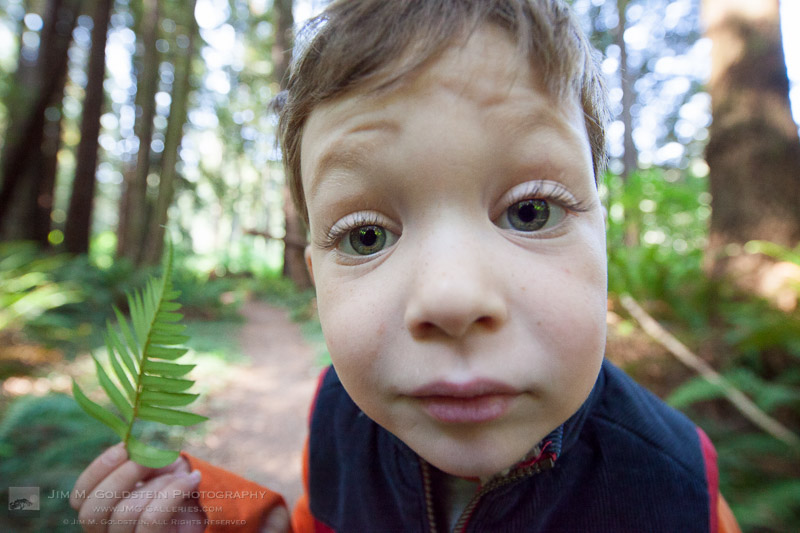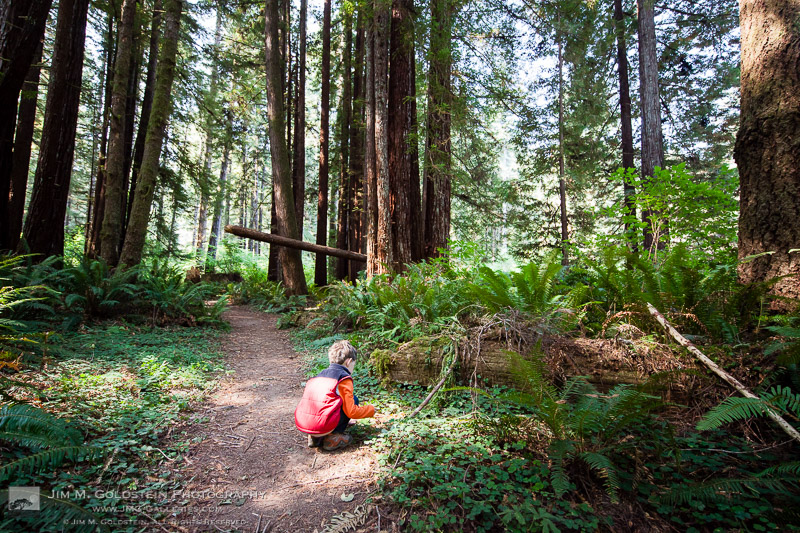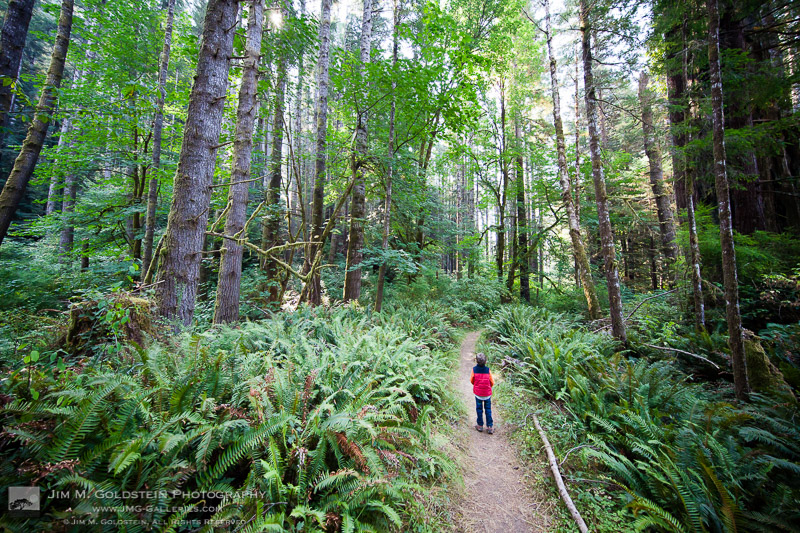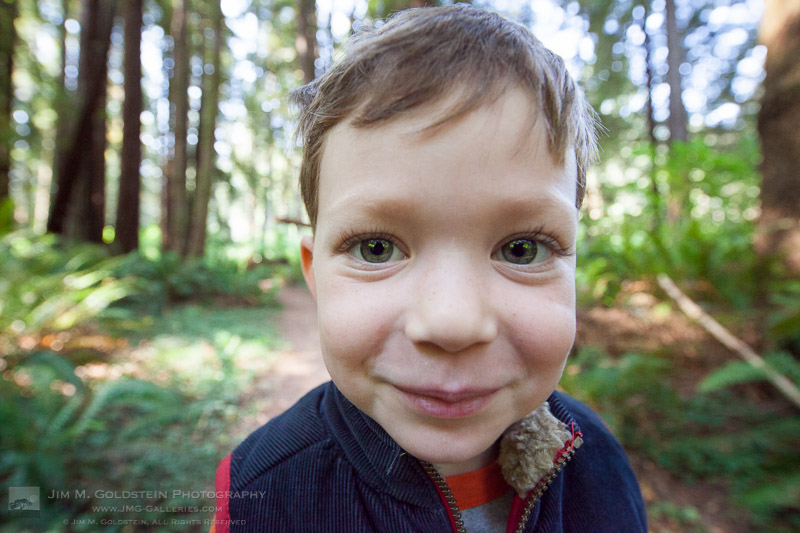
My son showing his curious and humorous side during a hike through the Redwood National & State Park
If you’ve followed my blog for several years you’re likely to have noticed a marked difference in what I’ve been posting and how frequently. Much of this has to do with a philosophical shift I’ve taken since my oldest son arrived in 2010. Before I’d likely mow through locations and scenes at a pace that might make some heads spin. My appreciation for the landscape never waned, but my ability to settle in and savor a location was not quite what it was when I first started in landscape photography. Time became short, goals became bigger and while being creatively productive it wasn’t quite the same. I didn’t realize this at the time, but after a couple year hiatus when I got back out in the field with my young son this all clicked. For the past few years I’ve made an effort to focus on teaching my son about the outdoors and to foster a very early & strong appreciation for it. While in a very limited capacity I might use photography to help him see things (ex. showing him the Milky Way above us) by and large I leave my DSLRs and film cameras at home. No matter what my two sons pursue in life I want them to be grounded in life knowing how important and valuable nature is to their psyche, family, culture and the world.

My 5 year old son exploring the Redwood forest floor on one of our hikes.
Seeing Through Different Eyes
One of the best things about my outings with my son is that everything is new, a curiosity and a discovery. This in turn means that as a parent I get to see things and appreciate them anew through his eyes. Until you experience this it may be hard to fully understand, but this is a huge thing. When running photography workshops for example with other adults there is an unspoken foundation of knowledge and experience. When out in nature with a child you’re starting from the ground floor in what the world is and how it works.
One of the more enjoyable aspects of seeing things anew through my son’s eyes are the unexpected detours along the way. Whether he’s extrapolating meaning from what I’m showing him to jumping to a new point or picking up on the value of observation and noticing something completely new & unplanned it all helps me see the world differently. By nature humans have a tendency to define their world mixing up cause and association with cause and effect. Your computer beeps as you press the “C” key on your keyboard and you’re likely to think pressing the “C” key caused the beep. From what I can tell from my limited experience with my son his brain is certainly subject to this tendency, but with limited experience and understanding of how the world works his hypothesis and explanations are often circumscribed and/or non-sequitor. This makes for very amusing conversations on trail or at a campfire, but more importantly sheds light on how to think creatively by derailing ones thought process from standard logic. As a parent I want to foster his ability to stay creative, but we’ll see how that fares over time with his exposure to standard educational schooling. As an artist his instinctive thoughts and rationalizations are a great reminder on how to think creativity by shedding limits on our thinking process introduced through regimented elements of our culture such as traditional schooling and work.

My 5 year old son taking in the atmosphere of the Redwood forest on our hike.
Understanding the World & Conservation
Sharing what I do know about the natural world and our impact on it is something that I often instill in my son. Apparently this isn’t always a conscious decision on my part either. Kids as I’m sure you’ve heard are sponges. They quickly absorb what they see and hear from their parents. In my case I apparently mutter thoughts about how wasteful we are, how things might have been if people were more conservation minded and what things must have looked like as the first person to witness a habitat we’re visiting. On a recent trip my son started muttering, “It’s too bad they cut down all the old growth Redwood trees.” Apparently in my awe of the forest as we were hiking I muttered this thought every time we saw a giant old growth Redwood tree stump left my loggers.
As time progresses my son is slowly understanding the impact we have on the beautiful places I take him to see. He’s also quickly understanding what impact natural conditions have on these places and our day to day life, case in point is the California drought. These are tough concepts for a young mind to grasp, but laying the ground work to understand them is incredibly important to me and hopefully will become increasingly important to him.

My son having some fun on our hike getting up close and personal with my wide angle lens.
Reward Of Comprehension
When behind the camera it’s easy to feel a sense of accomplishment when a special photo is made, but I’m finding that feeling is often dwarfed when I see my son comprehending and extrapolating meaning from the natural world and it’s processes. Knowing that we are not sterile observers of our world, but integral pieces of it that make or break natural equilibrium is no easy concept. Every little step in understanding nature and this concept is a meaningful one. For now making nature fun is the objective and in time he might not just see the world as I do, but in ways far beyond. So far he seems to be well on his way.
